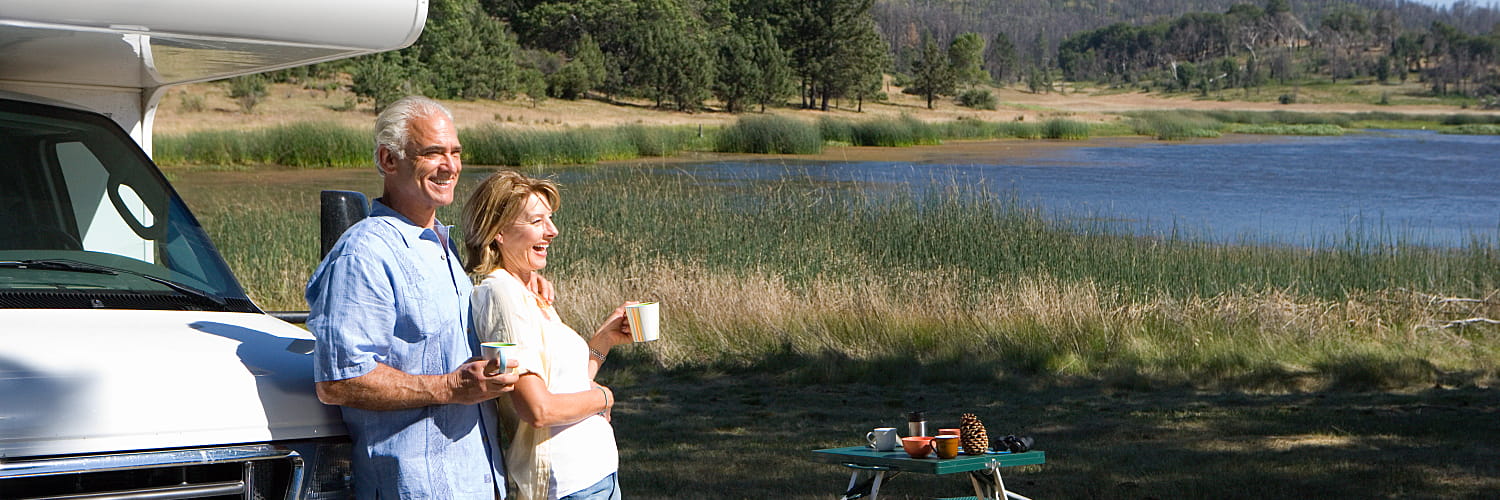Freedom is the great benefit of an RV retirement. You can roam at your leisure and change your plans at a moment's notice. You can visit the grandkids and make sure that everyone has their own space. You can see parts of the country at the best times of the year without a second thought about where you'll stay.
But is an RV retirement right for everyone? It can be a carefree lifestyle, but there are lots of considerations to think through before signing a lease on that Winnebago. Here are five to think through.
1. Finding the Right RV
There are tons of RV options — such as driveable motor homes and towables that hitch to a truck or van — so you'll need to find the one that fits your finances and your lifestyle. The cost of RVs can vary wildly, so getting a clear picture of your must-haves is crucial. Figure out your hopes and goals for traveling and living on the road, then narrow down your options to the vehicles that accommodate them. Then find a reputable local dealer that specializes in RVs and the RV lifestyle.
2. The Costs of Life on the Road
Life on the road isn't always cheap. You have to buy an RV, and then you have to get it insured and keep the fuel tank topped. You'll need food, but you won't have loads of storage space to keep staples handy, so factor in frequent trips to stock up. Also, check your cellphone coverage plans to make sure that you won't be paying extra for roaming charges. There are non-monetary factors to consider, too: You can do things like pay credit card bills online, but you'll still need to iron out life's smaller but no less important details, like how you'll receive mail when you're traveling.
3. Driving an RV
After purchasing your RV, you'll need to learn how to drive it. Before you embark on the RV lifestyle, make sure you and your traveling companion (or companions) can drive the vehicle. Depending on the type of RV you choose, you might need a special class of driver's license and some extra driving skills to be able to back it up and navigate parking lots. Your local registry or department of motor vehicles can help you with the former, and an RV driving school can help you with the latter.
4. Health Conditions and Care
Do you or your spouse or partner have any chronic health issues that require the care of a medical specialist? Do you regularly take prescription medications? If so, you need a plan. This could mean stocking up on medications, scheduling regular telehealth appointments and carefully researching your destinations to compile a list of the medical facilities in the area and whether they take your insurance. If you're on Medicare and planning to travel abroad, check the restrictions and guidelines and discuss your plans with your doctor before you leave so you can travel without worry.
5. Living Small With Another Person
Maybe you're going solo, but if you're living and traveling with a spouse or a partner, you'll need to assess whether you can share a small space 24/7. Talk with your partner and voice any concerns you might have about all that togetherness. RV retirement can be time to bond and connect, but human beings have different needs for time together and time apart. Communication is important when navigating the open road for extended periods, so be upfront about your needs.
Is an RV Retirement Right for You?
Life on the road in an RV is full of possibilities. You get to travel, see the country and visit friends and family without ever having to worry about getting a hotel room. But that freedom comes with some costs and potential speed bumps. As you decide what's best for your retirement lifestyle, keep the aforementioned considerations in mind.


 Laura Richards
Laura Richards










